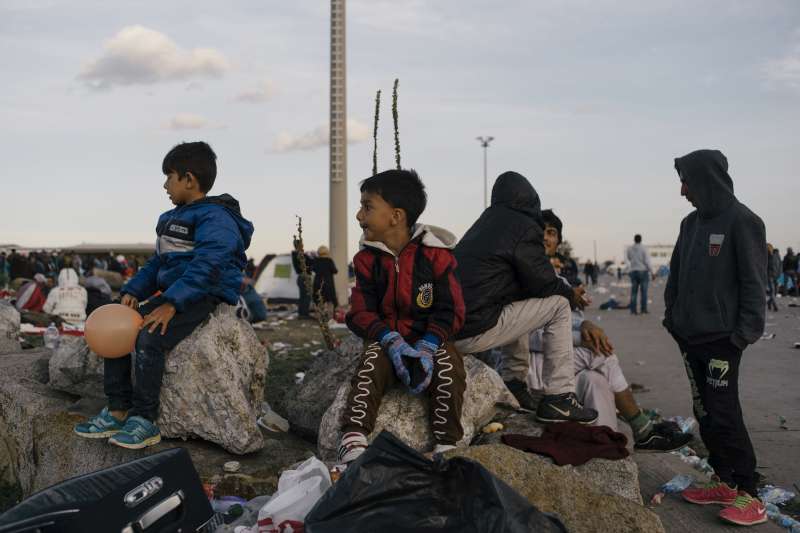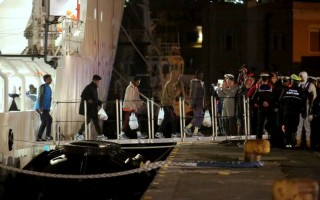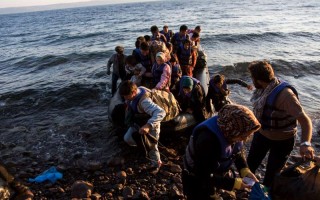
Two young refugees wait with their parents to go to emergency accommodation in Nickelsdorf, Austria, earlier this month. Austria is facing an unprecedented arrival of refugees, mainly from Syria, Iraq and Afghanistan. © UNHCR / F. Rainer
GENEVA, Sept 24, (UNHCR)—The UN refugee agency today welcomed a decision by European Union leaders to boost resources for humanitarian assistance to countries neighbouring war-torn Syria.
UNHCR, in a statement issued after the European Council decision, also welcomed a parallel decision to relocate an additional 120,000 people in the countries of the European Union.
“The relocation plan will not put an end to the problem, but it hopefully will be the beginning of a solution,” António Guterres, UN High Commissioner for Refugees, said.
“It is an important step toward stabilizing the crisis, but much more needs to be done. The plan can only work if, at entry points in Europe, robust facilities are created to receive, assist, register and screen people. These facilities must have a capacity that could handle the current average 5,000 people arriving every day by boat.”
Guterres reiterated UNHCR’s position that countries must also offer those in need of international protection a credible alternative to the present chaotic journeys across “border after border at the mercy of criminal smugglers”.
The current programme is limited compared with present needs, but must nevertheless be quickly implemented.
“In order for the system to work, effective support for the dignified return of those that do not require international protection must also be in place,” Guterres declared in the statement.
UNHCR also welcomed the announcement that critically needed new funding would be made available for refugees in first countries of asylum.
“So many refugee emergencies in the Middle East and Africa are woefully underfunded, leaving refugees in conditions so dire that many chose to move on,” Guterres said. “People will continue to seek safety and survival further afield if the root causes of forced displacement are not addressed.”
In relation to strengthening border control at the EU external border, UNHCR continues to insist that the management of borders needs to be consistent with national, EU and international law, including guaranteeing the right to seek asylum.
However, UNHCR added that it was disappointed that, notwithstanding relocation, no further measures have been proposed to create more legal pathways for refugees to reach safety in Europe, and again urged “a substantial and rapid increase in legal opportunities for refugees to access the EU”.
This would include enhanced resettlement and humanitarian admission, family reunification, private sponsorship, and humanitarian and student visas.
According to UNHCR’s assessment, 1 in 10 Syrian refugees are in need of resettlement—a total of 400,000 Syrian refugees.
“The international community as a whole should adopt the type of exceptional response which had been used in other humanitarian crises. Without such avenues, refugees will continue to be left with few options, and the increase in international efforts to crack down on smugglers and traffickers is unlikely to be effective,” the statement concluded.
UNHCR has stepped up its operations in countries affected by the current refugee flows and is ready to fully support all measures by the European Union and Member States, and other stakeholders, in effectively responding to the present crisis.





